Header image by Markus Spiske
The Trump era! It's been a fun time for ladyfolk, marked by abortion restrictions and gag rules, gun violence at the hands of incels, and one horrific revelation of sexual abuse/harassment after another.
And yet, it's also been a time of intense reckoning with sexsim in the US, with #timesup rising as a battle cry—a time of pussy hats, black dresses, and now, with the midterms rapidly approaching, a truly historic number of women running for office.
It has also been an incredible time for feminist literature, and these recently published books are the case in point.
![]() 1. "Red Clocks" by Leni Zumas
1. "Red Clocks" by Leni Zumas
It's a national bestseller, a New York Times Editor's Choice, an Amazon Best Book of the Month, an Indie Next Pick, etc. and so forth, for good reason. Like Margaret Atwood's The Handmaid's Tale, Zumas's Red Clocks is not so much the science fiction of a near future as it is speculative fiction of the world today, just in different places—which is to say, if you took El Salvador's notoriously strict abortion laws (which have actually resulted in women being imprisoned for miscarrying) and transplanted them just a few thousand miles to the north, to the Oregon Coast, in an era marked by a retrograde swing to the right, this world is what you'd get. Set in a version of the contemporary US where a "Personhood Amendment" has been added to the constitution, Zumas explores the fine line between medicine and magic, a pregnancy at the right time and a pregnancy at the wrong one, as well as the many ways that patriarchy works to undermine a woman's right to determine the course of her own life. Plus, there's a witch in the woods. ;-)
Get Red Clocks at Bookshop or Amazon
![]() 2. "The Book of Joan" by Lidia Yuknavitch
2. "The Book of Joan" by Lidia Yuknavitch
Ever wonder what the endgame of late capitalism is? Look no further than The Book of Joan, a novel set in a world where virtually every good and sacred thing has been exploited, denigrated, or destroyed, including the earth (now a radioactive wasteland), sex (human beings can no longer get it on), and childhood (the heroine of this novel is a former child soldier). The elite remnants of the human race are above it all, literally, as they float above the surface of the earth in a luxury satellite known as CIEL, presided over by the megalomaniac Jean de Men. But the resistance is growing, both within CIEL, where an artist is composing radically subversive stories on her skin, and below, where Joan—part saint, part soldier, part superhero—is taking direct aim at de Men's authoritarian deathcult. This novel is a total page-turner, despite being a largely experimental text, and if there's any justice in this world—and if the world itself survives—it will still be read a hundred years from now.
Get The Books of Joan at Bookshop or Amazon
![]() 3. "Her Body and Other Parties" by Carmen Maria Machado
3. "Her Body and Other Parties" by Carmen Maria Machado
If you're not a regular reader of short stories, particularly weird ones, particularly weird ones at the cutting edge of gender and sexuality, bear this in mind: the magic in these stories does not have one real-world analog. A green ribbon worn by a woman at all times might be her privacy, her autonomy, her queerness, or all of the above—it also might just be part of a story that haunted the author's childhood. The same goes for girls whose bodies are turning, inexorably, into dresses; for the dopplegangers who haunt alternate versions of Law & Order, forever seeking murdered girls; and for the women who, in undergoing bariatric surgery, find themselves haunted. These complex stories, conveyed in simple language, are as queer in their execution as they are in their subject matter, and they plumb the many ways that the female body is subject to violence, whether sexual, physical, or psychic. An absolutely haunting collection, and top-shelf short fiction.
Get Her Body and Other Parties at Bookshop or Amazon
![]() 4. "Sweet Lamb of Heaven" by Lydia Millet
4. "Sweet Lamb of Heaven" by Lydia Millet
Lydia Millet is so prolific that, at the time of this writing, she has a new book coming out (a short story collection entitled Fight No More), though her last is just over two years old. That's a high level of output for a literary writer, and great news for raving fans like me. And yet that last book, Sweet Lamb of Heaven, which Goodreads notes "blend[s] domestic thriller and psychological horror," was so eerily prescient that it continues to haunt me.
In it, a young mother is on the run from her businessman-turned-politician husband, Ned, of whom she says, "It's not that he's left the business world behind, it's just that he now believes politics are a sector of his enterprise." Ned's politics are fronted by right-to-life and family-first slogans, but behind this facade is a demonic agenda that may actually be to destroy life on earth. Anna is pursued at every turn by this powerful man, who's threatening to take her child if she won't pose as his smiling, supportive wife, and she doesn't know whom to trust—Ned seems to have connections everywhere, from the local police force to the guy who owns the auto repair shop. In one way, Anna's going through the worst divorce ever. In another way, she's living through the nightmare rise of fascism in the US. To my mind, no novel so clearly encapsulates the creeping horror of being a member of the Pantsuit Nation in the age of Trump.
Get Sweet Lamb of Heaven at Bookshop or Amazon
![]() 5. "The Poet X" by Elizabeth Acevedo
5. "The Poet X" by Elizabeth Acevedo
Even after a hundred years of agitation, women did not get the right to vote until 1920, and of course that right was not extended to women of color until much later. Gender equity is intersectional, and it is the work of ages; in order for that work to continue, young women must have the tools not only to recognize the insidious ways that patriarchy operates, but to recognize that it operates differently in different cultures.
This blazing bit of YA, a novel in verse, offers the reader those tools, along with the sense of being seen and heard for "big-body girls," girls of color, first-generation-American girls, and girls whose voices have been stuffed back in their throats by family members, teachers, peers, and the society at large. Xiomara, a young woman whose parents are from the Dominican Republic, must navigate a world in which her body is suddenly a liability, and in which the sexual attentions of the men on the street and the boys at school are somehow her fault, and her own attractions and interests are deemed slutty, impure. Poetry becomes Xiomara's private outlet, and later, her public one, as she overcomes both social expectations and her own shyness to become part of New York City's thriving Slam scene. A quick, deft, satisfying read.
Get The Poet X at Bookshop or Amazon
![]() 6. "We Were Witches" by Ariel Gore
6. "We Were Witches" by Ariel Gore
I've covered it elsewhere for LitReactor, but goddamn, I love this book, so I'm going to cover it again. Because really, how could one short review begin to do it justice? A hybrid novel/memoir thing that chronicles the protagonist's struggles and triumphs as an unwed teenage mother—and let's stop right there. Because if you want to get the ass end of patriarchy and capitalism, that's definitely the way to do it. Young Ariel doesn't have a dude to support her—her baby daddy's kind of a mess—but she wants to go to college, which is what society tells her she should, except society seems to have no interest whatsoever in actually helping her do it. From the welfare shamers to the bitchy neighbors to the court system, which wants to actually take her baby away from her, the responsible mom trying to put herself through school—because men's rights, and because mom happens to be queer—it's one hell of a gauntlet young Ariel must run. Luckily, she's met by fellow nonconformists—freaks and punks and feminists and such, as well as a bona fide witch—who offer her help, hope, and tactics. No wonder, when young Ariel encounter's the "penis diagram" of Freytag's Pyramid in Creative Writing 101, she objects, and goes on to create models (and stories) of her own. A handbook for resistence, a grimoire, "a magical spell, like an alchemical furnace, built with the conscious intention of transmuting shame into power," this book is in a class by itself.
Get We Were Witches at Bookshop or Amazon
![]() 7. "A Secret History of Witches" by Louisa Morgan
7. "A Secret History of Witches" by Louisa Morgan
Speaking of witches, it seems like they're part of the zeitgeist right now—maybe because there was a point back there toward the end of the Middle Ages where 50,000 to a million+ women were killed in pretty horrific ways, for the crime of having been accused of witchcraft. Most historians will tell you this was no more than a means of wiping out 1) uppity women; 2) "slutty" women; 3) women who held to the old (i.e., non-Christian, goddess-worshipping) ways; 4) women who subverted the authority of the clergy in matters of life and death because they were midwives and healers. But you'll see the commmon denominator here is "women."
So it makes sense that any real reckoning with patriarchy as a system would include a resurgence of the witch as archetype, which is exactly what we're seeing with novels like Red Clocks, We Were Witches, and this one, an epic intergenerational fantasy. In A Secret History of Witches, magical power is passed down from mother to daughter; it's the power to harm, the power to heal, and the power to attract, but in all ways and in all times a secret power, which must be hidden from the eyes of society (and often from significant others) because powerful women—uppity women, women who won't conform to societal norms—are dangerous, see? Morgan offers a sweeping vision of history through a feminist speculative lens, as one woman after another grapples both with her own power and that of her mother as she comes of age. A grand, gorgeous, emotionally affecting novel.
Get A Secret History of Witches at Bookshop or Amazon
![]() 8. "Alice: Memoirs of a Barbary Coast Prositute" edited by Ivy Anderson and Devon Angus
8. "Alice: Memoirs of a Barbary Coast Prositute" edited by Ivy Anderson and Devon Angus
Finally, though it's not fiction, and therefore lies outside my regular reading material, this list would not be complete without Alice: Memoirs of a Barbary Coast Prositute, published by the California Historical Society. The majority of the book was first published by the San Francisco Bulletin in 1913 as A Voice from the Underworld, a memoir in serial by "Alice," one of the many prostitutes in the city's red-light district, so lawless and freewheeling (in a city that was itself pretty lawless and freewheeling) as to be known as the Barbary Coast. As the editors note in their excellent introduction, whether "Alice" was one person or several is unknown, but the response to the memoir is not: the newspaper received over four thousand letters, many of them from prostitutes themselves, and many of them are included in this book, offering fascinating insight into the struggles not just of women "in the life," but of all women in this historical period.
Alice came to San Francisco as a poor working girl, under the aegis of a strict Victorian aunt, but as soon as she showed an interest in activities other than working (for insanely low wages in a local laundry) and attending church, she was treated like a slut. Alice was a normal teenage girl, with normal teenage desires, but it was precisely those desires—and the fact that her body attracted attention, whether or not that attention was desired—combined with her poverty, lack of family support, and status as a single woman that made her eventual livelihood almost inevitable in this context. As much a critique of capitalism as it is of patriarchy (with some choice quotes on both from Emma Goldman, a contemporary of Alice) this memoir and the letters that follow explore male/female sexuality, moral double standards, unequal access to employment, unequal pay, inadequate health care, and charity in ways that remain deeply relevant today.
Get Alice at Bookshop or Amazon
Now it's your turn. What are some of your favorite feminist books published in recent years?
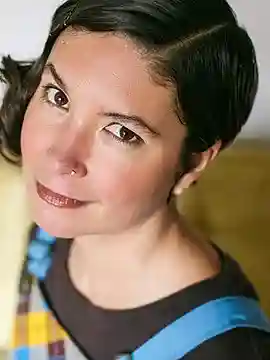
About the author
An author, editor, and educator, Susan DeFreitas’s creative work has appeared in the Writer’s Chronicle, Story Magazine, the Huffington Post, Daily Science Fiction, and Southwestern American Literature, along with many other journals and anthologies. She is the author of the novel Hot Season, which won a Gold IPPY Award for Best Fiction of the Mountain West, and holds an MFA from Pacific University. She divides her time between Santa Fe, New Mexico, and Portland, Oregon, and has served as a freelance editor and book coach since 2010.
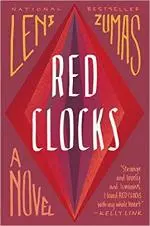 1. "Red Clocks" by Leni Zumas
1. "Red Clocks" by Leni Zumas
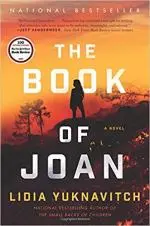 2. "The Book of Joan" by Lidia Yuknavitch
2. "The Book of Joan" by Lidia Yuknavitch
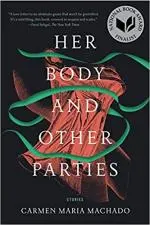 3. "Her Body and Other Parties" by Carmen Maria Machado
3. "Her Body and Other Parties" by Carmen Maria Machado
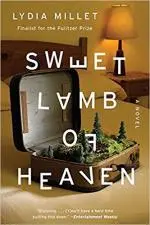 4. "Sweet Lamb of Heaven" by Lydia Millet
4. "Sweet Lamb of Heaven" by Lydia Millet
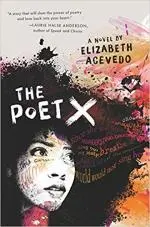 5. "The Poet X" by Elizabeth Acevedo
5. "The Poet X" by Elizabeth Acevedo
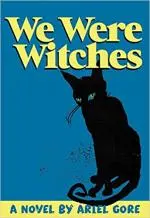 6. "We Were Witches" by Ariel Gore
6. "We Were Witches" by Ariel Gore
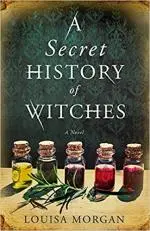 7. "A Secret History of Witches" by Louisa Morgan
7. "A Secret History of Witches" by Louisa Morgan
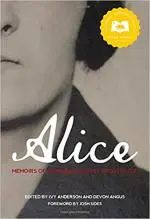 8. "Alice: Memoirs of a Barbary Coast Prositute" edited by Ivy Anderson and Devon Angus
8. "Alice: Memoirs of a Barbary Coast Prositute" edited by Ivy Anderson and Devon Angus








